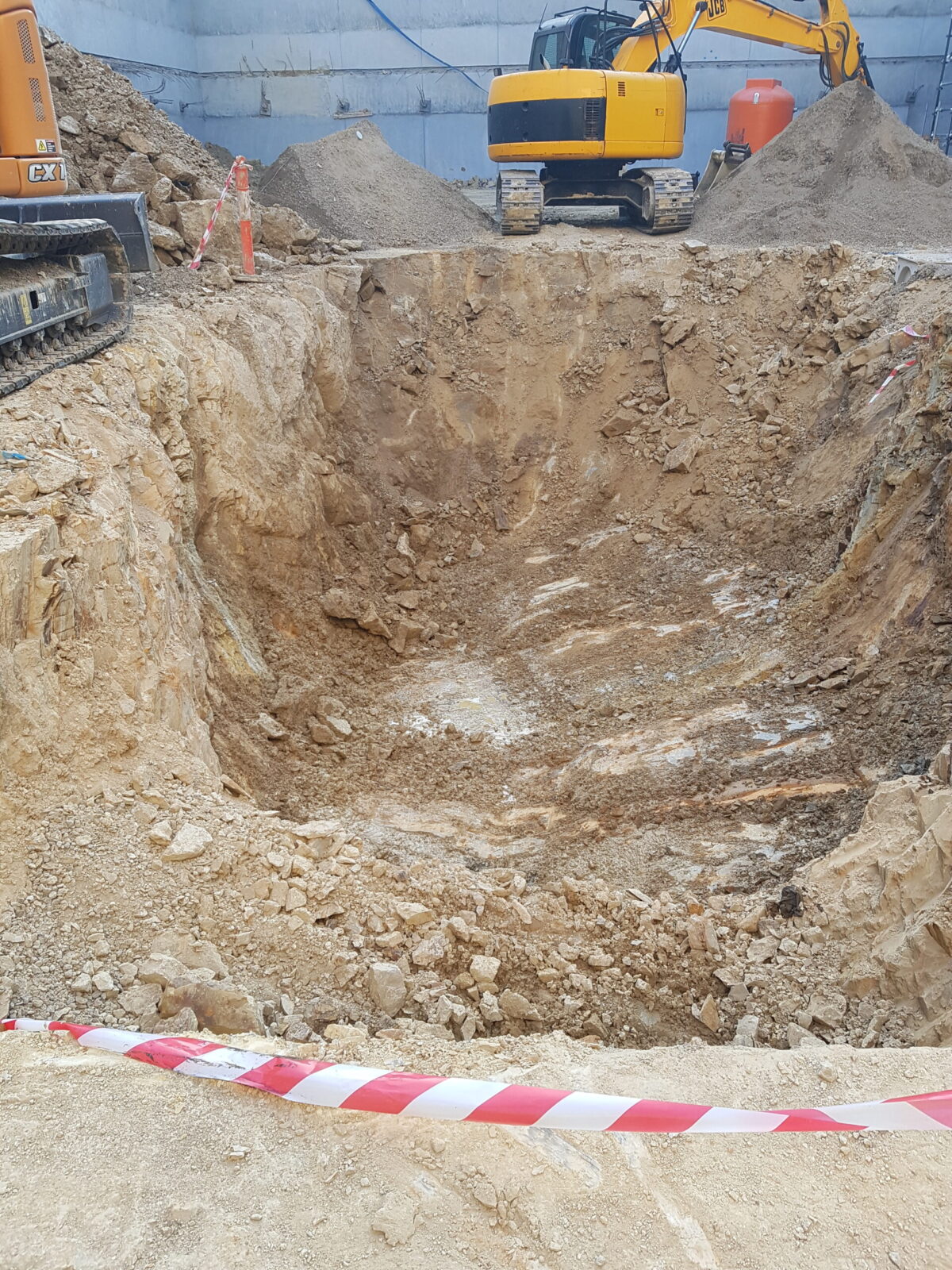Basement excavation, a critical phase in the construction process, involves digging below the ground to create space for basements or foundations. While this procedure is essential in modern construction, particularly in densely populated areas like Auckland, it carries a unique set of risks. These range from the stability of the soil and potential impact on nearby structures to managing the water table and handling excavation equipment safely. Compliance with environmental regulations and careful consideration of health and safety aspects can mitigate these risks, but awareness of the complexities involved is key to ensuring a successful and secure excavation process.
Soil Instability
Basement excavation requires careful handling of soil to maintain stability.
Risks
- Collapses: Improper handling may lead to the soil collapsing.
- Adjacent Structure Damage: Surrounding structures can be compromised if soil stability is not maintained.
Health and Safety Aspects
- Regular monitoring of the excavation site is essential.
- Adequate support structures must be in place to prevent collapses.
Water Table Considerations
Water tables near the excavation site can pose challenges.
Risks
- Flooding: Infiltration of water into the excavation site.
- Foundation Damage: Water can weaken foundations if not handled correctly.
Health and Safety Aspects
- Proper drainage systems must be implemented.
- Continuous monitoring is essential to detect any unforeseen water movement.
Handling of Equipment
Proper management of excavation machinery is crucial.
Risks
- Injury: Improper handling can cause serious injuries.
- Damage: Incorrect use may lead to damage to the machinery or nearby structures.
Health and Safety Aspects
- Comprehensive training for operators.
- Regular maintenance and safety checks.
Environmental Considerations
Basement excavation can have significant environmental impacts.
Risks
- Pollution: Dust, noise, and waste material can lead to environmental pollution.
- Wildlife Disruption: Nearby habitats may be affected.
Health and Safety Aspects
- Proper waste management practices.
- Adhering to environmental regulations and guidelines.
Key Takeaways
- Soil Stability: Essential to prevent collapses and damage to surrounding structures.
- Water Table Management: Requires careful handling to prevent flooding and foundational issues.
- Equipment Handling: Comprehensive training and maintenance are crucial.
- Environmental Considerations: Compliance with regulations is vital to minimize pollution and wildlife disruption.
FAQ Section
- Q: Can all soil types be excavated the same way? A: Different soil types require varying techniques and considerations. An expert assessment is crucial.
- Q: What is the importance of understanding the water table in excavation? A: Water tables can cause flooding and weaken foundations. Proper understanding and management are key to avoiding these risks.
- Q: How are environmental regulations enforced during excavation? A: Adhering to local environmental guidelines and regular monitoring by authorities ensure compliance with regulations.
Scientific References
Understanding the geotechnical properties of the soil and the hydrological considerations plays a key role in basement excavation. Various engineering disciplines are involved, and the following references can be valuable for deeper insights:
- Craig, R.F., “Soil Mechanics,” 8th edition.
- Terzaghi, K., and Peck, R.B., “Soil Mechanics in Engineering Practice,” 3rd edition.
- Lambe, T.W., and Whitman, R.V., “Soil Mechanics,” SI version.
Basement excavation is a complex process requiring careful planning and execution. By understanding the potential risks and following the proper health and safety protocols, the excavation process can be conducted efficiently and securely. This understanding also ensures that the excavation is done with minimal adverse impact on the surrounding environment and community.
Examples of Basement Excavation in Auckland
- Central Business District (Auckland CBD):
- Excavation Projects: Numerous commercial buildings require deep basements for parking and services.
- Potential Issues: In densely packed areas, soil stability and water table management are critical. Instances where close proximity to other structures led to unexpected challenges would be common here.
- Parnell:
- Excavation Projects: Upmarket residential developments often include extensive basement spaces.
- Potential Issues: Compliance with strict environmental guidelines and safeguarding against damage to adjacent historical structures might pose difficulties.
- North Shore Suburbs (e.g., Takapuna, Albany):
- Excavation Projects: These areas have seen a mix of commercial and residential basement constructions.
- Potential Issues: Some builders might face difficulties related to the underlying rock formations or proximity to the coastline, affecting water table considerations.
- Western Suburbs (e.g., Henderson, Waitakere):
- Excavation Projects: Various commercial and industrial facilities.
- Potential Issues: Instances where handling of heavy machinery or adherence to specific environmental standards might have caused unforeseen delays or complications.
Specific Instances of Major Problems
It’s challenging to pinpoint particular instances where major problems occurred during basement excavations in Auckland. However, builders often face issues such as:
- Unforeseen geological conditions leading to project delays.
- Damage to adjacent properties requiring expensive remediation.
- Non-compliance with environmental or safety regulations resulting in fines or legal challenges.
These examples illustrate the multifaceted nature of basement excavation and underscore the importance of comprehensive planning, understanding local regulations, and continual monitoring during the excavation process. Reach out to Earthmoving Auckland if you need assistance with your basement excavation project.

